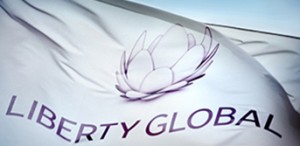
After more than 40 years of operation, DTVE is closing its doors and our website will no longer be updated daily. Thank you for all of your support.
Liberty Global sells DTH business to M7
 Liberty Global is to sell its central and eastern European DTH business to international pay TV operator M7 Group for €180 million.
Liberty Global is to sell its central and eastern European DTH business to international pay TV operator M7 Group for €180 million.
Liberty’s DTH satellite operations currently serve four central and eastern European markets: Hungary under the UPC Direct Brand, the Czech Republic and Slovakia under the freeSAT brand and Romania under the FocusSat brand.
Liberty served 774,000 customers across the four brands, as of September this year, with about 11,000 customers also taking internet services. The overall number represented a loss of 4,100 customers in the third quarter.
M7 Group said that the agreement would enable it to gain further scale and increase its top line by about 30% post-acquisition.
Bill Wijdeveld, M7 Group’s business development director, told DTVE that the group expected the deal to secure approval in the first quarter and that he did not envisage any significant regulatory issues emerging in the two markets in which M7 already has a presence.
Wijdeveld said it was “too early to comment” on whether M7 would fold the existing Liberty Global operations into its own DTH brand in the Czech Republic and Slovakia, but said the group was “quite confident that this will provide a good base to grow in the region”.
Wijdeveld said was too early to make any comment on what impact the acquisition would have on the group’s commercial offering in the region.
He said that the deal would give M7 the opportunity to expand its hybrid strategy, launched a year ago. He said that hybrid services were now being used by about 15-20% of M7’s overall subscriber base, “which is promising, and we see great potential to further grow the offer in the two markets [the Czech Republic and Slovakia] and extend it to Hungary and Romania”.
M7 currently operates its Skylink service in the Czech Republic and Slovakia. The group also operates DTH services in the Netherlands, French-speaking Belgium and Austria.
Liberty has already agreed to sell its fixed-line operations in central and eastern Europe – outside of Poland – to Vodafone, and the M7 agreements means that it will now only be present in Poland, where Vodafone does not have a presence, across the CEE region.
Merrill Lynch International acted as financial advisor to Liberty Global.
Commenting on the implications of this latest divestment for Liberty Global, media and telecom analyst Paolo Pescatore said he saw this as a “further sign of the company seeking to exit the European market” in the wake of the sale of its German and CEE fixed business to Vodafone, the sale of its Austrian unit to T-Mobile and the much-speculated on potential divestment of its Swiss business in the near future. Liberty Global CEO Mike Fries has long claimed that the company’s share price is undervalued and the management are under some pressure to provide a return to shareholders.
Pescatore said that consolidation of the European cable market had proved costly and integrating the various operating businesses had been a struggle, while subscriber growth had been “lacklustre” and cross-selling of products to its existing base had met with limited success.
“Convergence does offer plentiful opportunities but [Liberty’s] strategy across Europe is not working. It needs to return value back to shareholders. Organic growth is challenging and most new subscribers seem to be coming from new build, focussed on cable broadband, but not coming fast enough,” he said.


